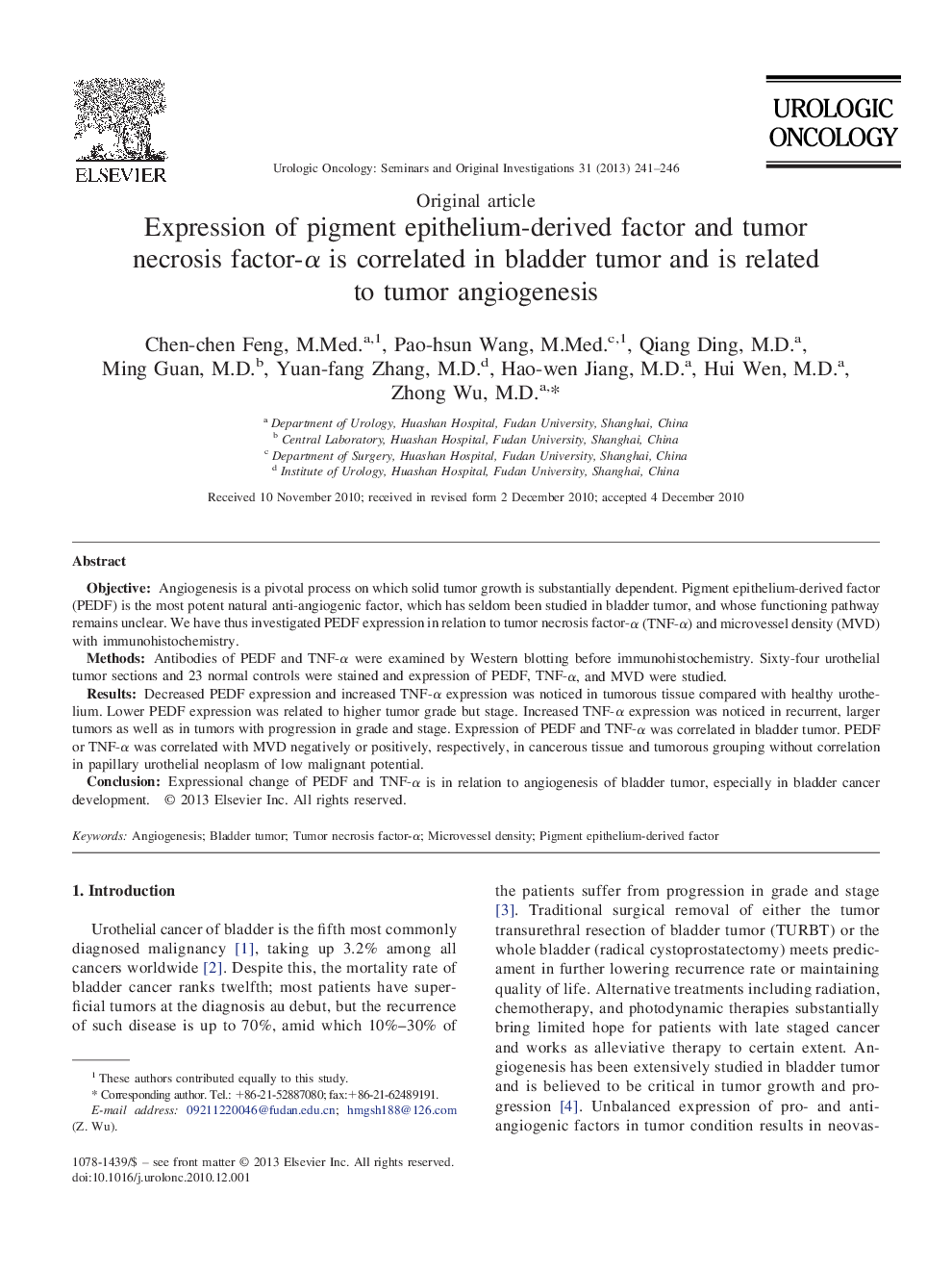| Article ID | Journal | Published Year | Pages | File Type |
|---|---|---|---|---|
| 4000132 | Urologic Oncology: Seminars and Original Investigations | 2013 | 6 Pages |
ObjectiveAngiogenesis is a pivotal process on which solid tumor growth is substantially dependent. Pigment epithelium-derived factor (PEDF) is the most potent natural anti-angiogenic factor, which has seldom been studied in bladder tumor, and whose functioning pathway remains unclear. We have thus investigated PEDF expression in relation to tumor necrosis factor-α (TNF-α) and microvessel density (MVD) with immunohistochemistry.MethodsAntibodies of PEDF and TNF-α were examined by Western blotting before immunohistochemistry. Sixty-four urothelial tumor sections and 23 normal controls were stained and expression of PEDF, TNF-α, and MVD were studied.ResultsDecreased PEDF expression and increased TNF-α expression was noticed in tumorous tissue compared with healthy urothelium. Lower PEDF expression was related to higher tumor grade but stage. Increased TNF-α expression was noticed in recurrent, larger tumors as well as in tumors with progression in grade and stage. Expression of PEDF and TNF-α was correlated in bladder tumor. PEDF or TNF-α was correlated with MVD negatively or positively, respectively, in cancerous tissue and tumorous grouping without correlation in papillary urothelial neoplasm of low malignant potential.ConclusionExpressional change of PEDF and TNF-α is in relation to angiogenesis of bladder tumor, especially in bladder cancer development.
